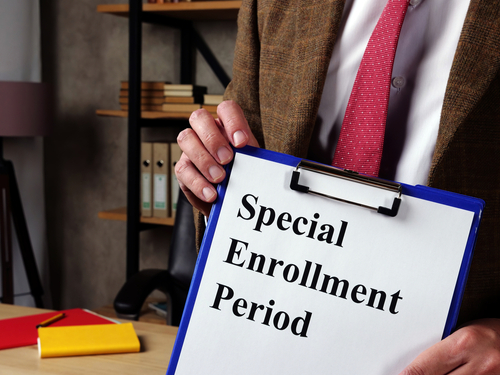A Special Enrollment Period is for people who are either leaving their area of coverage or are losing coverage. The amount of time you have to enroll is determined by the situation you are in at the time of enrollment.
Suppose you are moving out of your plan’s service area. In that case, you are required to inform your Medicare plan at least one month before your moving date or within the timeframe of two months after your move.
If your coverage is lost, you have exactly two months to enroll in a new Medicare plan. There are also Special Enrollment Periods for Medicare Advantage plans and Medicare prescription drug plans.
Special Enrollment Period For Original Medicare
When you turn 65, the age that you begin qualifying for Medicare, you or your spouse may still be employed and covered under your employer’s or your spouse’s employer’s health insurance plan. Due to this circumstance, you may decide to delay enrolling in Medicare Part B until your current health coverage ends. Suppose you are 65 or older and still receiving coverage through a group health insurance plan. In that case, you typically qualify for a Special Enrollment Period (SEP). If you qualify for a SEP, you will not have to pay a 10% monthly premium penalty for late enrollment.
To qualify for Medicare Part A without paying a premium, you must have been employed for ten years, or 40 quarters. You must have also paid Medicare taxes while employed. Suppose you do not have the work history to qualify for premium-free Medicare Part A at 65 and are receiving coverage from an employer. In that case, you have the option to delay Medicare Part A enrollment without penalty.
Do keep in mind that you have the option of enrolling in Medicare Part A and Part B while covered under a group health plan to make the most of your coverage options.
Special Enrollment Period For Medicare Advantage and Medicare Part D
Medicare Advantage plans and Medicare Part D plans have Special Election Periods, also known as Special Enrollment Periods. SEPs for Medicare Advantage plans and Medicare Part D plans differ from SEPs for Original Medicare. The SEPs for both of these plans typically apply to those who have lost their health coverage.
You may also qualify for a SEP through these plans if a natural disaster occurs. To meet the qualifications for this type of SEP, you must meet the following criteria:
- FEMA declared an emergency or major disaster in your county.
- You lived in the county when this emergency or major disaster was declared.
- You had a valid SEP going when the emergency or major disaster was declared.
- You had not yet changed your coverage when the emergency or major disaster was declared.
- The valid SEP for your situation has not expired.
Need Coverage? We Can Help
At Medicare With Jake, we know that trying to understand all the Medicare enrollment periods can be a confusing process. That’s why we’re here to help! To learn more about qualifying for a Special Enrollment Period, reach out to us today!


